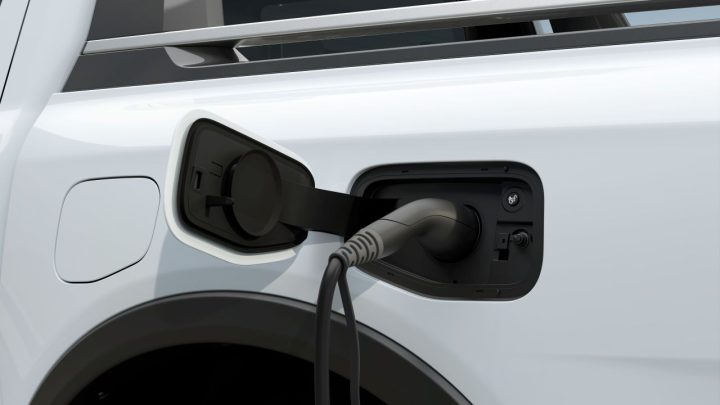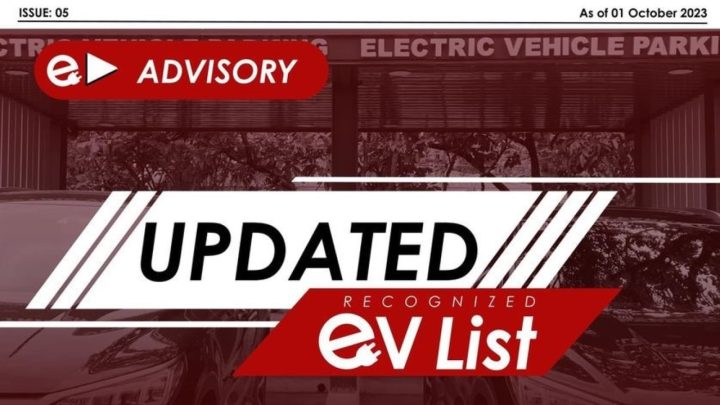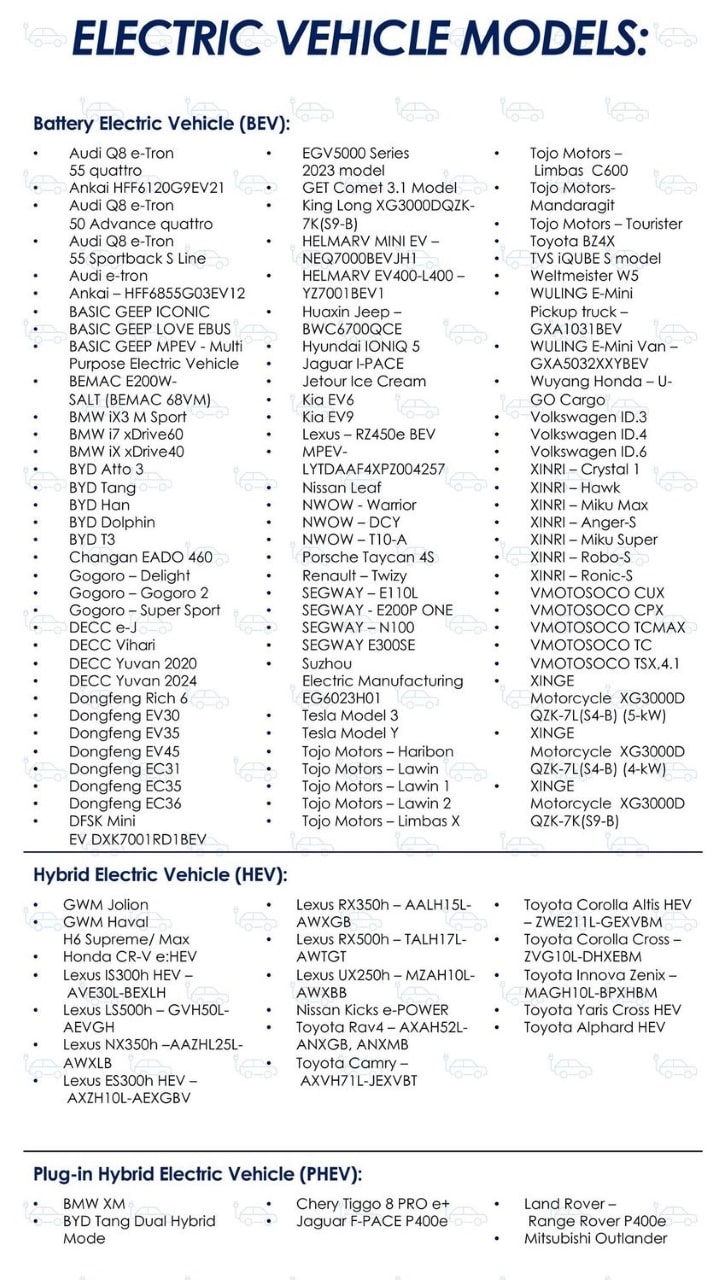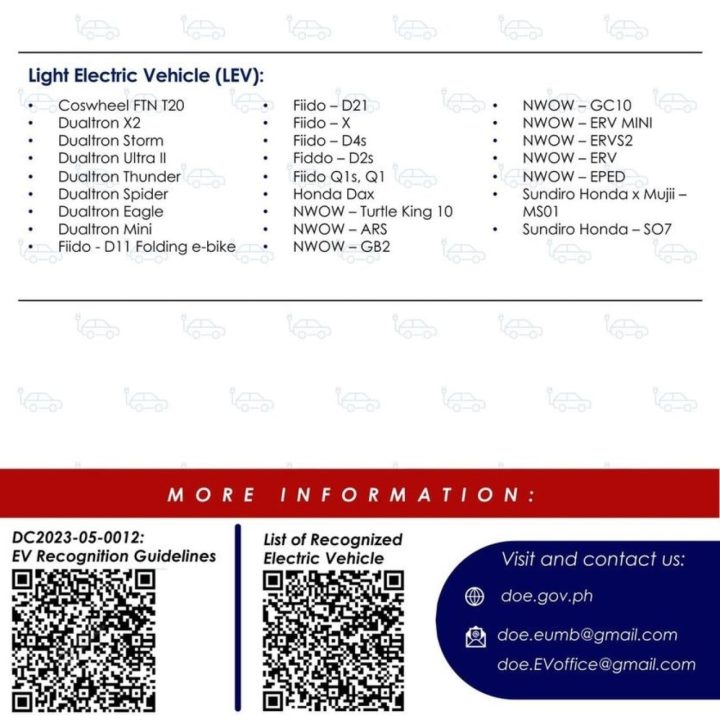
It’s been nearly a month since we first published the Department of Energy’s Recognized EV List. That’s the list that contains all the brands, makes, and models of electrified vehicles that have the benefit of being exempted from the UVVRP, more commonly known as “Coding”. Our previous article emphasized that mild hybrids are not included in the list since they do not use nor rely on a battery or electric motor for propulsion. It’s safe to say, by this time, that they won’t make their way into future updates to the list you’ll see below.
Latest Recognized EV List released by DOE on October 1, 2023. NO mild hybrids as expected

Photo: Department of Energy
The date indicated in the list’s header is October 1, however, it was shared on the Department of Energy’s (DOE) social media page on October 4. This latest Recognized EV List has a lot more vehicles listed, especially in the Battery Electric Vehicle (BEV) category.

Photo: Department of Energy
From BYD, to Dongfeng, to the not-so-recognized brands like NWOW and Tojo Motors, these have made their way into the Coding-exempt list of EVs. Another thing we noticed is that the Tesla Model 3 and Model Y also made it into the most current Recognized EV List.
More Hybrid Electric Vehicles (HEV) have also been added. From what was a list of 13, there are now 18 HEVs in the list including two models from GWM – the Haval and Jolion – as well as the newly launched Honda CR-V e:HEV.
As for the Plug-In Hybrid Electric Vehicles (PHEV), only one has been added and it’s the Land Rover – Range Rover P400e.
In the Light Electric Vehicle Category of the Recognized EV List, there is a good number of additions as well to the October 2023 tally.

Photo: Department of Energy
More than the “excitement” of some people who see that their vehicle might have been added to the Recognized EV List, the bigger, more pressing matter is the fact that some mild hybrids were believed to be exempted from Coding and were sold to many people with emphasis on that premise.
Let’s put things into perspective. By now, it’s too late for buyers of said vehicles who were drawn in with a supposed Coding exemption to do anything about it. But if we think about it, no brand is too reckless to approve such “marketing” hoo-ha without going through its legalities and processes first. Whatever sales agents might have said to bring a sale – we’d like to think – are things that were simply cascaded down by the powers that be after having secured all that they need to market their vehicles thusly.
To say that manufacturers and/or sales reps resorted to “budol” or just flat-out conned you is something, in our sincerest belief, no sane manufacturer brand would do. Let’s get real here. We empathize with those who might have been included in those who got their hopes up, we really do, but again, think about it. A brand won’t simply compromise its existence in any market by green-lighting something that is just not true. Especially with something as touchy as sensitive an issue such as exemption from Coding. Unless they simply want to usher the end of their existence in the PH market.
That said, let’s wait for what these manufacturers have to say, yes? Be fair. To everyone, manufacturers and vehicle buyers and owners alike. Until we get to the bottom of things, we just have to adhere to this Recognized EV List, and hope that the Manufacturers were caught by surprise just as much as buyers were when mild hybrids 44 were officially excluded from the List.


